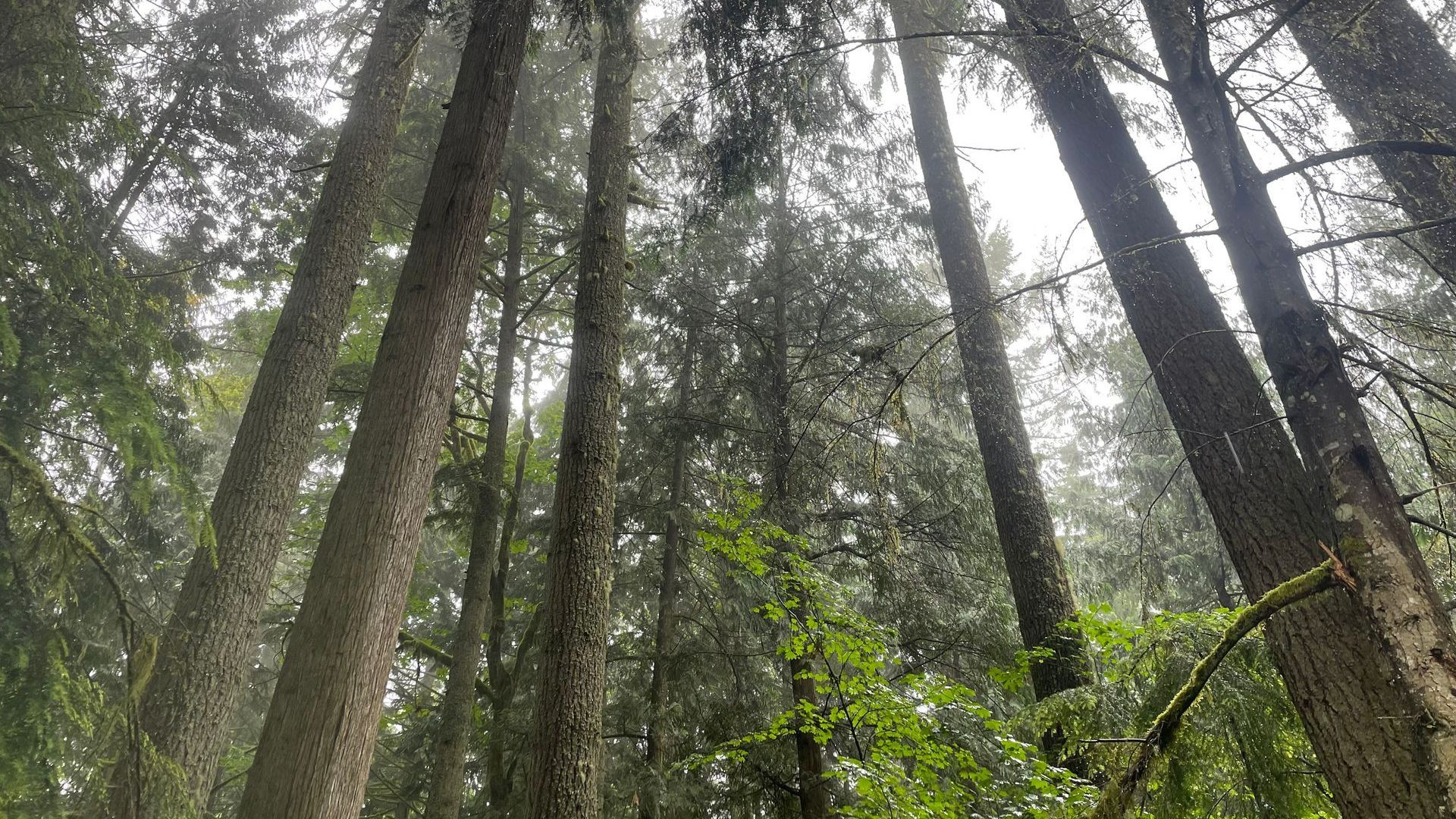Wishbone Litigation Update - DNR Sued Again for Logging Carbon Rich Legacy Forests
John Talberth • February 2, 2024
The Wishbone Timber Sale, in King County, will release nearly 50,000 tons of greenhouse gas pollution and make the land more susceptible to water shortages, drought, wildfires, and heat waves

Litigation updates:
- March 24, 2024 update: See below for links to DNR's Response Brief and Appellants' Reply.
- February 2, 2024 update: See below for a link to the Appellants Opening Brief, which lays out all the reasons DNR cannot continue to hide behind its FEIS for the Marbled Murrelet Habitat Conservation Plan and Sustainable Harvest Calculation since those documents do not contain any useful information about the GHG emissions or any other climate impact of the Wishbone timber sale.
Seattle, WA – The Center for Sustainable Economy (CSE), Save the Olympic Peninsula (STOP) and the Legacy Forest Defense Coalition (LFDC) today sued the Washington State Department of Natural Resources (DNR) over its plans to clearcut over 100 acres of carbon rich 80- to 110-year-old ‘legacy’ forests in the Tolt and Snoqualmie River basins northeast of Seattle in King County. Legacy forests are rare, naturally regenerated stands that provide exceptional levels of carbon storage, biodiversity, and water quality.
The complaint (notice of appeal) for the Wishbone Timber Sale cites Hilary Franz, as Commissioner of State Lands and DNR for violating State Environmental Policy Act (SEPA) requirements to disclose and mitigate climate impacts and consider climate smart alternatives, such as the thinning of densely stocked young plantation trees rather than the big, old trees in legacy forests. The groups are being represented by attorney Claudia Newman of Bricklin and Newman, a Seattle-based firm.
Prior to filing the lawsuit, the plaintiffs submitted extensive scientific and technical evidence to DNR documenting that as proposed, the timber sale is likely to generate nearly 50,000 metric tons of carbon pollution, eliminate carbon sequestration entirely for ten to fifteen years, and make the land more susceptible to heat waves, droughts, landslides, floods and wildfires.
Last October, CSE and STOP were successful in a similar lawsuit filed against two timber sales in Jefferson County. There, Superior Court Justice Keith Harper found that DNR’s “determination of non-significance” for those sales were clearly erroneous because climate impacts were not considered. According to Dr. John Talberth, President and Senior Economist for CSE “Rather than taking Justice Harper’s ruling to heart Hilary Franz is doubling down on climate denial and offering up dozens of new timber sales in Washington’s most carbon rich forests without disclosing their greenhouse gas emissions or other climate impacts. Wishbone is one of the most egregious. Washington voters want climate leaders not climate laggards so it’s surprising to see this pattern of decision making from someone aspiring to be Governor.”
SEPA provides DNR with every opportunity to transition its logging program away from the logging of carbon rich legacy forests and concentrate, instead, on thinning dense, young timber plantations in order to help transition those stands back in to real, climate resilient forests with bigger trees and more complexity. This is because SEPA is not just about disclosure of impacts, it is also about mitigating those impacts. SEPA also provides the agency with an opportunity to consider a myriad ways DRN could choose to generate revenues from proposed logging sites other than timber. Last July, the Washington State Supreme Court recognized DNR’s authority to do so.
But according to Ron Richards, STOP’s Chair, “None of these workable alternatives – like earning revenues from carbon, recreation, or conservation leasing – will see the light of day unless DNR complies with SEPA and evaluates those options before logging. This is what we’re after. The impacts of DNR's disrespect for the law and its lack of concern for the environment go far beyond this one sale in King County and adversely affect the health of forests throughout Washington State and beyond. It's critical that DNR and Commissioner Hillary Franz, begin complying with the law.”
For more information, please read:


